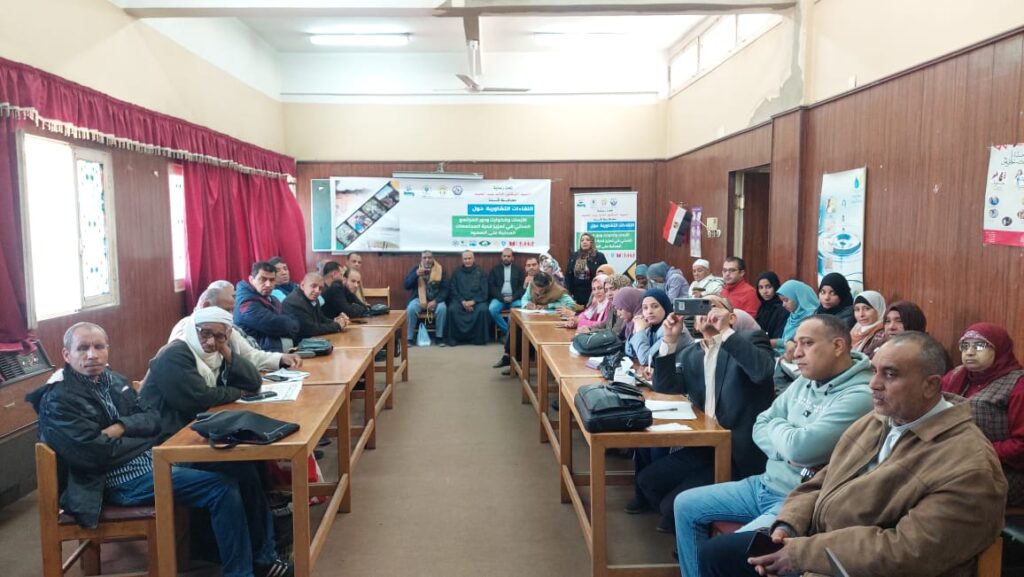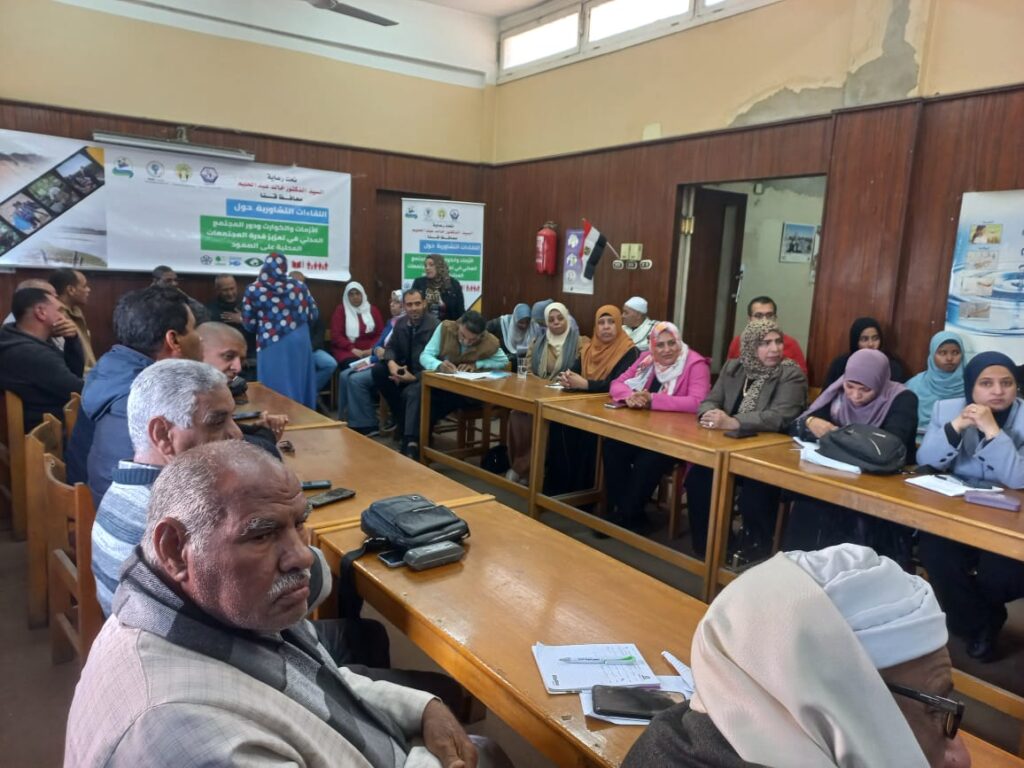Sustainable Development Forum in Qena Discusses Mechanisms to Enhance Resilience Against Disasters
The Local Sustainable Development Forum in Qena, in collaboration with the Arab Network for Environment and Development (RAED), and in coordination with the Qena Media Complex and the National Council for Women, held a consultative meeting on crisis and disaster management. This event is part of a series of discussions organized by local sustainable development forums across governorates, an initiative launched by the Arab Office for Youth and Environment (AOYE) to support the role of civil society in enhancing community resilience against crises and disasters.
Discussions during the meeting focused on climate change, mechanisms to mitigate its impacts, and its relation to strategies for reducing the risks of environmental crises and disasters. The meeting also explored the roles and tasks that civil society organizations can undertake to support governmental efforts, such as increasing green coverage to reduce air pollution, lowering temperatures, and minimizing carbon emissions and other greenhouse gases contributing to global warming.
The event was held in the main hall of the Qena Media Complex and was moderated by Youssef Ragab, Director of the Media Complex. It was attended by Dr. Huda Saadi, Rapporteur of the National Council for Women in Qena and Coordinator of the Local Sustainable Development Forum in the governorate; Yasser Abdel-Mawgoud, Deputy Head of the Regional Union of NGOs and forum member; Engineer Mohamed Nasr, Environmental and Solid Waste Management Consultant in Qena; Yasser El-Samahoudi, Director of the Adult Education Branch in Qena; alongside a number of executive leaders, civil society representatives, and participants from youth and women’s sectors.
The meeting featured several key discussions, resulting in a number of recommendations and proposals, including:
- Establishing a hotline for reporting environmental violations and ensuring prompt action.
- Publishing booklets that outline penalties for environmental crimes as a preventive and deterrent measure.
- Criminalizing unauthorized tree-cutting, ensuring that such actions require approval from relevant authorities.
- Preserving green spaces and intensifying awareness sessions targeted at farmers.
- Highlighting the importance of relocating industrial waste outlets away from the Nile River.
Dr. Huda Saadi emphasized that climate change now directly impacts communities in ways not seen in previous years. She added: “As poor nations, we play a negligible role in global carbon emissions, like many developing countries, as major industrial emissions primarily originate in developed nations. These emissions are the main contributors to global warming, which significantly drives climate change. This, in turn, affects agricultural productivity, causes population displacement, exacerbates food shortages, and leads to the spread of diseases and other environmental disasters.”
Yasser Abdel-Mawgoud noted that this consultative meeting is the first of its kind for the Local Sustainable Development Forum in Qena, focusing on supporting civil society’s role in enhancing local communities’ resilience to climate challenges. He added that the forum in Qena is one of the outcomes of the “Our Country Hosts COP27” initiative, conducted under the patronage of the Governor of Qena, to emphasize the importance of unifying efforts to confront crises and disasters and strengthen society’s capacity to withstand diverse environmental challenges.
He further stated that the meeting was supported by the Arab Network for Environment and Development (RAED) and coordinated with various governmental and civil entities, including the Qena Media Complex, the National Council for Women, the Youth and Sports Directorate, the Environmental Affairs Agency, the Solid Waste Management Authority, and other stakeholders involved in environmental issues. In the coming period, more consultative meetings on critical environmental topics will be organized, followed by submitting all recommendations and proposals to the relevant authorities.



